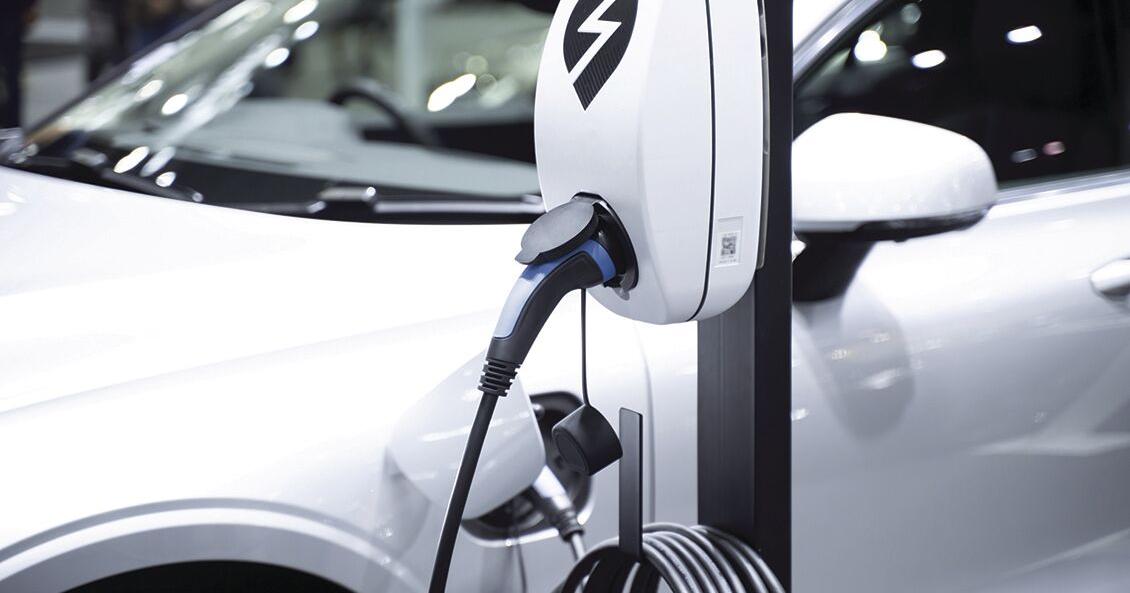
Although electric vehicles have been on the road since the 1800s, they are becoming more common as the years pass by. Familiar car manufacturers are providing electric vehicles for the public to adapt to a new world; to a new way of driving, and not having to pump gas.
Will electric vehicles take the place of internal combustion engines, or will gas and diesel engines remain prominent in the retail auto industry? Multiple factors, like the interest gained, the lack of charging stations, the federal emission standards and the general demand all play into the future of electric vehicles.
“There is very minimum interest expressed in electric vehicles. No one has been affirmative so far,” said John Crotty of Crotty Chevrolet. Crotty also stated, with all things considered, that if the infrastructure increased, there would be more interest.
“Their goal is that for each two-car family, there should be at least one electric vehicle,” Crotty said. Crotty doesn’t believe that the lack of charging stations in the area will create an issue.
“These vehicles are most beneficial for those who drive less than 10 miles to work,” Crotty explained.
Frank Fernandi of Humes Ford of Corry, agrees with this assessment.
“Electric vehicles are not meant for long road trips,” he said. “They are mostly used for those who drive back and forth to work.”
The lack of local charging stations, however, leads to individuals having to purchase their own chargers for their electric cars. Fernandi stated that, along with the lack of charging stations, there are a few different factors that may create an issue for the future of electric vehicles.
“The overall expense of electric vehicles will be an issue itself. There is a significant difference in cost to replace a battery for an electric vehicle compared to combustion vehicles,” Fernandi said. “We can’t expect people to be able to afford these vehicles, let alone charge them.”
Specifically, he noted the cost of installing a charging station at a private residence.
“It costs to install a battery charger at a house. Typically, they are put in a garage. If there is no garage, they are usually put outside and become vulnerable to the weather conditions,” Fernandi commented.
Still, Ford isn’t letting that stop them from keeping up with modern trends.
“The manufacturers are working to support this technology, and the CEO of Ford is moving forward with the electric platform,” Fernandi explained. “We do have an interest in progressing with electric technology. We have a consultant coming in to give us an idea for battery charging requirements. I don’t feel it will become the bulk of our business, but it will be a part of it. The platform for electric vehicles will be rebranded and referred to as ‘electric cars.’ Like a cellphone, you plug it in at night.”
Still, there are a lot of unknowns.
“The problem with electric vehicles is that we don’t know what the resale values will be once there are 60,000 to 80,000 miles on them. When someone needs to replace their battery, they will be looking at a hefty expense,” Fernandi commented. “Electric vehicles will continue to trend upward, but not at the same pace. Most Tesla owners state that they would not get a second.”
Additional questions Fernandi posed are whether electric bills would increase, and also the issue of inner cities not maintaining much housing that includes garage units, which means charging stations would be exposed to the elements.
Despite all this, as the federal emission standards continue to kick in, one may assume electric vehicles will become more of a trend.
Crotty isn’t so sure.
“No, I don’t believe it will become a trend. As far as emission standards, the manufacturer companies will find a way to deter emissions,” he said. “As of now, we have three to four electric vehicles, including a truck, on the market. The goal is for electric vehicles to reach 10% of vehicles, as it is around 6% now. At this point, it’s a waiting game.”
Fernandi believes the focus should not switch to electric vehicles, but instead, the industry should turn its attention to hybrid technology.
“I don’t think electric vehicles will affect the industry, or our business by much. A lot of people will want electric vehicles, but the manufacturers and the government need to switch the focus to hybrid vehicles,” Fernandi said. “People don’t consider the future expense of these electric vehicles. There is no road tax on these vehicles, which can lead to economic issues. If we don’t offer electric vehicles, those who want them will go out of the area to purchase one. Therefore, we must service them, and will need an offering. We can still order and locate electric vehicles now, but in the future, we will sell them.”
Crotty stated that there are no electric vehicles for sale on the lot at Crotty Chevrolet.
“There really isn’t much of a demand. If it increases, I will expedite what I need to do to sell them and sell more,” Crotty said. “The customer will always dictate what the manufacturer is going to do.”
